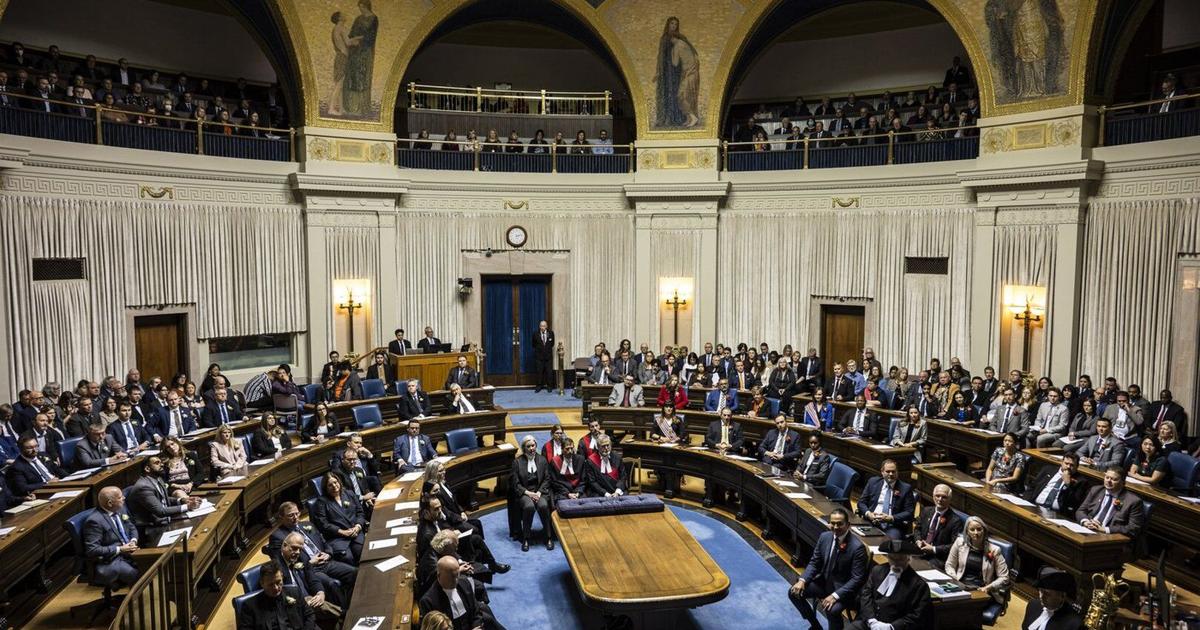Copyright thedailyblog

Over the past few days the Ministry of Education has published a number of the new ‘knowledge based ‘curriculum documents. Our worst fears have been realised, as these are a group of ideologically driven documents, inconsistent and illogical in their composition, and even worse, there is no way schools and teachers will be able to actually teach from them. As we would expect from documents complied by people who seemingly have no idea how teaching happens or how children actually learn, the requirements on school are excessive to the point of being impossible. I actually feel some sympathy for the poor staff in the Ministry of Education, who have been stuck with issuing these and defending them. The big issue, as it has been ever since the introduction of Tomorrow’s Schools in 1989, is that the MOE is required to implement the policy of their minister, and so the Ministry of Education staff are stuck with trying to make a silk purse out of a sow’s ear, as the saying goes. This is what we get when politicians, from any party, think they know all about education, and thus set unachievable policies. To set the scene, here are a few comments taken from social media. “Dr. Cassandra Mudgway @legallyfeminist.bsky.social The new curriculum is cooked. It treats teaching like it’s just standing at the front of the class making kids learn an endless series of facts for 6 hrs a day. The science lists of bullet points all end w a dead western scientist they (presumably) need to learn abt & cram for an assessment. Cooked.” @pmax.bsky.social The new Social studies curriculum is atrocious in general, but I just want to shine a spotlight on the explicit retreading of literal Nazi propaganda that is woven through the year 10 content! Buckle up this shit is shocking!” “Bruce Buckman @brucebuckman.bsky.social I’ve just realised that new curriculum was written by people who think winning a pub quiz is a measure of well educated you are.” The first thing that struck me when I glanced at a couple of the documents was that regardless of the ideology behind them, the sheer number of things children were required to learn was ridiculous. Even if science for example, was the only thing children were required to study, there is no way they could learn everything. As it is, under the mandated requirements for schools to spend the bulk of the teaching day on literacy and numeracy, there is insufficient time for the sheer quantity of ‘knowledge’ detailed in the other curriculum documents. I’ve not read anything about the role of the Education Review Office in this, however if the 1990s is any guide they will be expecting schools to show evidence that they are implementing all the curricula as intended. Have had to deal with ERO back then, I feel for the schools today if this is going to be the case. A recent commentator remarked that these new curriculum merely detail long lists of facts that children are expected to learn. Learning lists of facts, and actual knowledge, are two different things. Back in my teaching days, science was my preferred subject, so the Science Curriculum was of interest to me. Science is one area where children need to learn basic scientific facts (mathematics being another subject where factual knowledge is essential). I discussed the science document with my long time friend, Bruce Hammonds, who in a varied career, was at different times a principal, an art adviser, and a science adviser. Given his science adviser background, I was interested in Bruce’s comments. We both feel that children need to learn key scientific understandings and principles, and that this lack of specificity was a major failing of previous science curriculum documents. There’s no way this could be said about the new curriculum, in fact it’s gone to the other extreme. The sheer quantity of the material to be covered would result in children not learning much at all, either because of the need to go through it in a very shallow and quick process, or by having to cut out large amounts. Given the time pressures, there will be very little scope for actual ‘hands on’ science, which to me is real science – children learning by doing rather than being instructed. Given the lack of teaching time and the sheer quantity of material that needs to be covered, the only way to try to do this will be through the teacher dominating the classroom through direct instruction, as we feared. Pity as in my opinion there hasn’t been a good science curriculum since the 1980s. There have been quite a number of articles criticising these new curricula, too many for me to discuss in depth. I will link some below with selected comments so you can read them for yourselves. “The new curriculum for the Social Sciences is absolutely enormous. It’s knowledge rich, there’s no denying that. There are, of course, issues about what that knowledge is and who gets to decide what knowledge is important enough to feature, but in this post I want to focus more on the sheer quantity and the issues this causes if we are supposed to be following the science of learning.” “But the quantity of those bullet points and the information they represent is overwhelming. Expecting all of this to be taught in two years is unrealistic and goes against the science of learning – the very thing Erica claims to be promoting and in favour of. In year 9 history, for example, we are supposed to teach change in New Zealand from 1840-1914, then WWI and the aftermath from 1914 to 1920, and then another casual 80 years from 1920 to 2000. One hundred and sixty years of history.” “Otherwise, it’s going to amount to a teacher reading a textbook at students just to cover off everything that needs to be covered. We will end up with students who do great at a pub quiz, but can’t critically engage with the content. That’s not the science of learning. That’s not explicit instruction. That’s a lecture.” Exactly. There’s a lot more in the article so please read it. “More than 40 maths educators and researchers have written an open letter calling on the Ministry of Education and Minister of Education to pause the latest curriculum rollout immediately. The university professors, lecturers, teaching fellows, maths mentors and maths curriculum leads are questioning why the maths curriculum has been re-written for the third time in three years, saying they were “deeply concerned” by both the changes themselves and the process used for its development”. ‘On the more substantive issues with the new, new curriculum, the experts said it was “overcrowded” and included “an unrealistic number of learning objectives”. In the first year of schooling, there were now 86 objectives (across knowledge and practices), compared with 30 in the 2024 version. The United Kingdom, Singapore, and Australia maths curriculums had between 12 and 28 objectives for the comparable year level. “Too many objectives means that children will not be able to learn core concepts due to cognitive overload and insufficient time for practice.” This is what happens when a curriculum is developed to meet a very narrow ‘knowledge based’ education agenda that takes no notice of how children actually learn and how teachers teach. “What we are left with now in maths is not even a curriculum. It is a barebones syllabus that includes only very basic knowledge and skills. Gone is any focus on the conceptual understandings or big ideas that students should develop. The application of skills and knowledge is nowhere to be found. Problem solving is out, as is the ability to communicate, reason, justify or explain mathematically.” “The whole process makes it clear that Erica Stanford is much better at the politics of education than she is at the substance.” “Now that she has turned to other curriculum areas, the wheels have fallen off. The minister has not even reverted to research or evidence for the maths curriculum changes, because there is no evidence to support them. The ministerial advisory group leading the curriculum rewrite has said this explicitly.” Yet another teacher who sees the danger in the rushed introduction of a curriculum that isn’t based on evidence or research, instead being based on one book that Erica Stanford read at the beach. “The new curriculum is more difficult and more full. There is now a longer list of maths procedures and vocabulary to be memorised at each year of school. For example, year 3 children should learn there are 366 days in a leap year and that leap years happen every four years. Year 5 students should know what acute, obtuse and reflex angles are”. A little query – surely the length of the year and occurrence of leap years is science? And please tell me why children need to know the names of various angles? Do you? ‘Much of the “effective maths teaching” material about clearly explaining concepts and planning for challenging problem solving has been removed. Also gone are the “teaching considerations” that helped guide teachers on appropriate ways to teach the content. The maths children should learn was previously broken up into what they needed to “understand, know and do” – the UKD model. But this has changed to “knowledge” and “practices”’. Memorising something without understanding, and without knowing how to apply it, is not learning, and it isn’t knowledge. NZHTA has serious concerns about the Social Sciences Curriculum draft released today. Our initial concerns are as follows: “● The Ministry has interpreted ‘knowledge rich’ in the Social Sciences to mean ‘knowing lots of facts’. A ‘knowledge-rich’ curriculum in the Social Sciences should build conceptual understanding through rich case studies and content. The draft released today lacks this focus, offering factual content without the necessary conceptual, or contextual, depth. The replacement of curriculum strands with the domains of History, Civics and Society, Geography, and Economic Activity, risks fragmenting the Social Sciences and undermining Social Studies as a cohesive subject. Replacing conceptual strands with disciplinary domains and a high level of prescribed content, will make developing integrated units for teaching extremely challenging. The volume of prescribed material at each year level is unmanageable within the time allocated to the Social Sciences in schools (from 2027, 1 hour per week for Years 0-8 and 3 hours per week for Year 9-10 as recommended by the newly released Te Mātaiaho). The draft curriculum prioritises breadth over depth. For example, the chunking of New Zealand history into large chronological timeframes such as ‘New Zealand 1840-1914’ (Year 9) will result in surface level study. Asking Year 7 students to study Te Tiriti o Waitangi and 1852 Constitution Act, the French Revolution and the Industrial Revolution in one academic year is unrealistic and developmentally inappropriate. The sheer amount of content included in the Social Sciences curriculum draft will lead to cognitive overload for students and teachers alike. The curriculum follows a rigid chronological structure to the detriment of the learning that would take place. It does not recognise that some historical events are more complex than others. For example, the origins of World War One are much more complex and conceptually based than those of World War Two, yet they are to be taught in Year 9 due to the chronological sequencing of the curriculum. The curriculum draft leaves little space for teachers to adapt teaching and learning to meet the needs of their students and local contexts. This will lead to a fundamental shift in teacher practice through this less flexible and more prescriptive approach.” “In a series of open letters, maths education experts have expressed “deep concern”; dance, drama, music and visual arts teachers said they had been “dealt a significant blow”; and PE teachers asked to pause the release of their draft curriculum.” “Meanwhile, organisations representing physical education, dance, drama, music, and visual arts teachers made a last-ditch attempt to pause the release of their draft curriculums ahead of today’s scheduled release. In an open letter to the Education Ministry and to Education Minister Erica Stanford the four arts teacher groups said they were “blindsided” by an initial indication of what would be in their curriculum which they said had “dealt us and the arts education community a significant blow”. It said the curriculum would narrow and diminish arts teaching in primary schools and place drama and dance in a performing arts framework. It said the New Zealand arts curriculum was highly-regarded overseas, but the indicated changes were not world-leading.” ‘Physical Education New Zealand’s open letter to Stanford said material emerging from the curriculum rewrite did “not reflect the research, evidence and disciplinary base that underpins the learning area, or the intent of a genuinely knowledge-rich curriculum”’. Have you got the message yet? When educators across the subject disciplines are saying essentially the same thing about the new curriculum, then it is clear that this situation is serious. I warned in my previous article that Erica Stanford’s untried experimentation was a serious risk to our children’s education and this new curriculum is evidence of that. The only saving grace is that New Zealand teachers are very professional and will work very hard to develop ways to ensure our children don’t suffer, not that Stanford has any appreciation for their efforts. On another matter, you may have read that Kelston Boys High is battling against a parent group wanting to take it over and turn it into a charter school. The ability to do this was prescribed in the charter school legislation that Seymour introduced into parliament and I’m surprised it’s taken this long for some unscrupulous person/organisation to take advantage of it. This is yet another example of Seymour’s perfidy – as I’ve said previously we have been played for fools. There are overseas precedents for this – in England state schools can be forcibly turned into ‘Academy Schools’, their name for charter schools. And naturally the USA also has examples of state schools being forced to become charter schools – one particularly significant case was after Hurricane Katrina in New Orleans when all public school employees were dismissed, the schools taken over by a charter school organisation and all teachers replaced with ‘Teach For America’ teachers, younger people who were given six weeks training and sent out to teach – that fits in with the New Zealand Initiative view that teachers don’t need to be qualified. I’ll leave the final comment to Helen Clark. “Helen Clark @HelenClarkNZ Preposterous: how can a public school be threatened by a hostile takeover which aims to make it a charter school? NZ education system is being subjected to ideologically-driven structural & curriculum reforms which will do long term damage unless arrested.”



